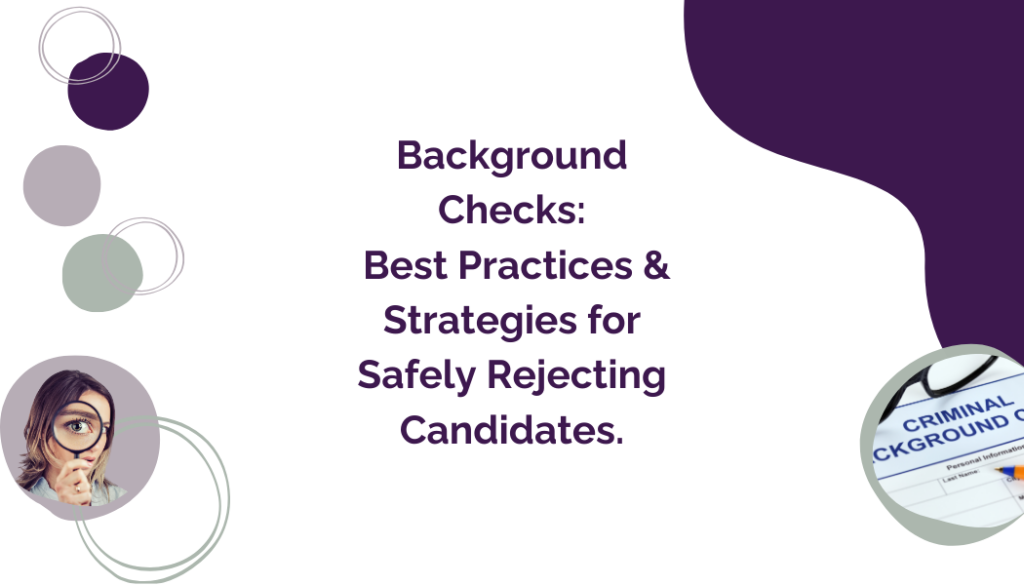Background checks play an important role in the surrogacy journey. It provides essential insights into the suitability and reliability of both surrogates and their partners. Agencies must prioritize safety by identifying any potential red flags that may compromise the surrogacy journey. At the same time, agencies need to mitigate risks to protect their business. These assessments encompass various factors, including criminal history, financial stability, and overall character, providing peace of mind to intended parents.
Federal Law & Background Checks
While federal law establishes standards for background checks, state regulations may add additional complexities. State laws do not override federal laws, although they often impose stricter requirements. Agencies must stay informed about the laws and regulations in each state where background checks are conducted. Engaging a licensed third-party vendor for background checks should mitigate most of these risks.
The Fair Credit Reporting Act (FCRA) is a federal law. It must be considered when running a background check on a person, even when employment is not involved. The FCRA applies to any situation where a consumer report is used when conducting background checks for personal reasons. The FCRA imposes requirements on how that information can be used, disclosed, and disposed of.
These requirements include:
- obtaining the individual’s consent before obtaining the report,
- provide certain disclosures to the individual and
- ensure the accuracy and privacy of the information contained in the report.
Anyone conducting a background check for any purpose covered by the FCRA must ensure compliance with the law’s provisions to avoid potential legal liabilities.
State Law & Background Checks
California has some of the strictest regulations governing background checks. These at least 3 laws that impose requirements and restrictions beyond what is required by federal law:
- The ICRAA regulates investigative consumer reports, similar to traditional consumer reports. It includes more in-depth personal information obtained through investigations into a person’s character, general reputation, personal characteristics, or mode of living.
- The California Consumer Privacy Act (CCPA) could apply when requesting a background check on a surrogate because the background check involves a business collecting and using the surrogate’s personal information.
- The California Consumer Credit Reporting Agencies Act (CCRAA) primarily focuses on employment-related background checks and the use of consumer credit reports in employment decisions. Therefore, its application to surrogacy background checks may be limited or not applicable.
In summary, if your agency intends to conduct a criminal background check on a surrogate and her partner residing in California, compliance with all CA state and federal laws is imperative. This entails obtaining written authorization from the individuals, providing required notices and disclosures, and ensuring that the background check does not include information exceeding 7 years. (with some exceptions). It is recommended that agencies inform intended parents that California background checks may be limited to 7 years.
Similarly, New York restricts the reporting of consumer credit information to seven years. In contrast, Texas has relatively lenient regulations, permitting the reporting of criminal convictions regardless of the search timeframe. States like Florida, Illinois, Pennsylvania, Georgia, and Ohio have no specific legislation limiting the timeframe for background checks.
Tips when Rejecting a Candidate
If an agency rejects a surrogate based on the background report, be careful not to violate federal or state laws. Always provide written notification to the applicant and include the following points:
- Clearly state in writing that the candidate’s initial reporting of any criminal wrongdoing to the agency was misrepresented or potentially fraudulent.
- Emphasize the importance of trust in a surrogacy relationship and how the discrepancy may impact this trust.
- Where applicable, highlight the potential threat to the health and safety of the surrogacy relationship and pregnancy.
- Explain that conducting a background check is a standard component of the agency’s evaluation process and provide the candidate with a copy of the report.
- Inform her that your agency’s policy regarding background checks is fair and consistent. In making your decision, you should consider the type of offense, how long ago it happened, the likelihood of future offenses, and the impact of non-disclosure on future relationships.
- Inform the candidate of her right to challenge the accuracy of the background report and that the agency will reconsider its decision if provided with written proof of incorrect information that has been corrected.
Mitigating Risk for Agencies
To mitigate the risk of non-compliance with federal and statutory laws, agencies are strongly advised to engage a nationally licensed third-party vendor to conduct background checks. Additionally, carefully review background consent forms to ensure compliance with state laws applicable to the surrogate.
If the intended parents request a copy of the criminal background search, ensure you have the surrogate’s written consent to share this information. For liability mitigation, consider providing the report to the attorney handling legal matters and the intended parents during the contract process. Sharing a copy with the mental health professional evaluating the candidate is also advisable. These proactive steps ensure transparency, minimizing the risk of oversight and potential legal claims.
CRM & Background Checks
Integrating CRM software into your agency’s workflow streamlines background checks for surrogates:
- Simplify with a single authorization form for all candidates. Any edits will immediately be available to all staff.
- Automate follow-up tasks for signed forms.
- Save on third-party signature apps; it’s included in our CRM.
- Enhance efficiency with customizable email templates that can be auto-filled when rejecting a candidate, maintaining professionalism and consistency in communication.
Incorporating CRM software into your agency’s operations streamlines background checks and enhances overall efficiency and effectiveness in managing surrogacy arrangements.
Author: Karen Synesiou


